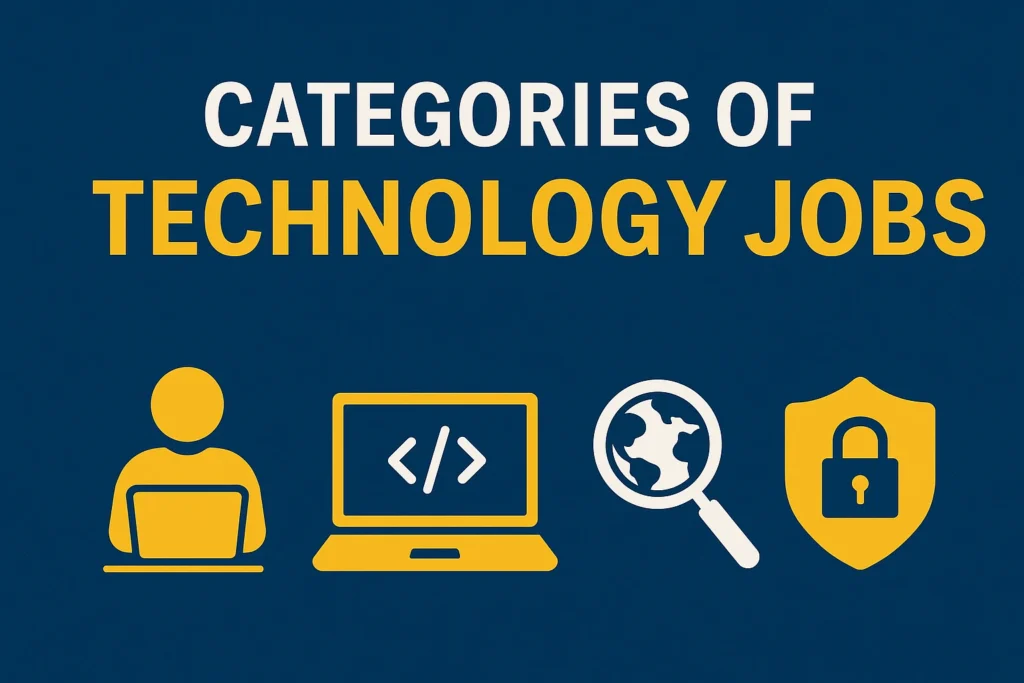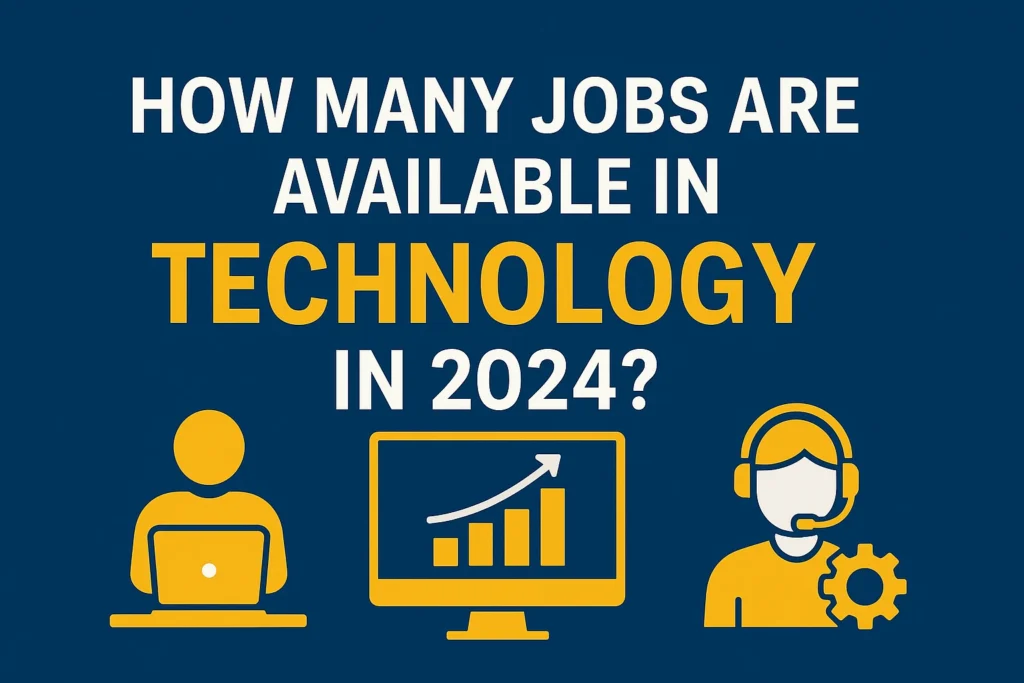Introduction to the Technology Job Market
The technology job market in 2024 is thriving, fueled by rapid innovation, digital transformation, and an ever-growing demand for skilled professionals in tech companies, as indicated by job posting data. Companies across the tech industry are expanding their workforce to keep pace with emerging technologies like AI, cybersecurity, and cloud computing, contributing to strong employment growth in tech jobs. For those wondering how many jobs are available in technology, recent CompTIA and Bureau of Labor Statistics reports reveal millions of opportunities in software development, data science, and information technology, with growth rates far exceeding the overall employment average. Hiring trends highlight a surge in demand for tech talent, competitive salaries, and specialized skills in technology positions, creating a highly attractive career landscape for today’s job seekers.
How Many Jobs Are Available in Technology?
Latest Statistics and Reports (BLS & CompTIA)
The technology job market continues to expand, with CompTIA’s latest tech jobs report and Bureau of Labor Statistics (BLS) data highlighting millions of active job listings in 2024. Roles in software development, information security analysis, data science, and AI are leading the tech job growth. The unemployment rate for tech occupations remains well below the national average, reflecting strong employment statistics for skilled tech workers. Salary trends show steady increases, especially in in-demand areas like cybersecurity and cloud computing.
Global vs U.S. Tech Job Availability
Globally, the technology industry is experiencing unprecedented growth, with emerging markets contributing to the rising number of available roles, as shown in job posting data. In the U.S., the tech workforce is projected to grow much faster than overall employment, driven by digital transformation, automation, and the need for advanced technical skills in network and computer systems administrators.
Categories of Technology Jobs

Software Development Roles
Software developers remain at the core of the tech industry, creating applications, systems, and platforms that power modern businesses. High demand spans web development, mobile apps, and enterprise solutions, particularly among web developers, as companies explore how many jobs they need to fill.
Cybersecurity Positions
With cyber threats on the rise, information security analysts and cybersecurity specialists are essential for protecting sensitive data, networks, and systems, highlighting the importance of advanced certifications in the hiring process.
Data Science & AI Careers
Data scientists and AI engineers analyze and interpret complex data to develop machine learning models and automation solutions that improve efficiency.
Networking and Cloud Computing Jobs
Network administrators and cloud engineers maintain infrastructure and manage cloud migrations critical to digital transformation, which creates new job openings in the tech market.
Emerging Technology Roles
New positions in blockchain, quantum computing, and augmented reality are rapidly expanding, offering exciting opportunities for skilled professionals.
In-Demand Tech Occupations in 2024
Top 10 Most Wanted Roles & Their Salaries
The 2024 tech job market is dominated by high-demand roles such as software developers, cybersecurity analysts, data scientists, cloud engineers, and AI specialists. According to CompTIA and BLS data, salaries range from $80,000 for network administrators to over $140,000 for experienced AI engineers. Information security analysts and software developers are projected to see double-digit job growth due to increasing reliance on digital systems.
Skills Needed for High-Paying Positions
Employers seek advanced skills in programming languages like Python, Java, and C++, along with expertise in cloud platforms, machine learning, and cybersecurity frameworks. Certifications such as CompTIA Security+, AWS Solutions Architect, and Certified Ethical Hacker can significantly boost earning potential in the competitive technology industry, particularly for jobs in 2023.
Factors Driving Tech Hiring Trends
AI & Automation Impact
Artificial intelligence and automation are transforming industries, creating new technology jobs while reshaping existing roles for tech workers. Demand for AI engineers, machine learning specialists, and automation experts continues to surge.
Cybersecurity Needs
Rising cyber threats and stricter compliance regulations are fueling demand for information security analysts, penetration testers, and security architects to safeguard critical systems.
Cloud Migration and Digital Transformation
Businesses are accelerating cloud adoption, driving the need for cloud engineers, DevOps specialists, and network administrators to manage infrastructure and support digital transformation initiatives.
Shortage of Skilled Workers
The tech industry faces a talent gap, with employers struggling to find qualified professionals in high-demand fields like data science, software development, and emerging technologies. This shortage is pushing salaries higher and intensifying competition for skilled tech talent in technology positions.
Role of CompTIA in the Tech Workforce
Certifications That Boost Employability
CompTIA certifications are widely recognized in the technology industry for validating essential skills among tech professionals. Credentials such as CompTIA A+, Network+, and Security+ help job seekers stand out in competitive markets like cybersecurity, networking, and technical support, especially in the hiring process. Employers often prioritize certified candidates for in-demand roles, knowing these qualifications meet industry standards, which is crucial in the hiring process.
How CompTIA Supports Career Growth
Beyond entry-level certifications, CompTIA offers advanced credentials like CySA+, PenTest+, and CASP+, which prepare professionals for specialized and high-paying positions in fields such as information research scientists. These certifications align with evolving hiring trends, covering emerging technologies, cloud computing, and information security, which are critical for professionals looking to explore how many jobs they can qualify for. By bridging skill gaps and ensuring workforce readiness, CompTIA plays a key role in shaping the state of tech occupation employment globally.
Salary Trends in the Tech Industry
Average Salaries by Role
In 2024, the tech job market offers competitive pay across various occupations. Software developers earn an average of $110,000 annually, while information security analysts typically make around $103,000. Data scientists, cloud engineers, and AI specialists often see salaries exceeding $120,000, reflecting the high demand for specialized skills in the technology industry.
Salary Growth from 2023 to 2024
Reports from CompTIA and the Bureau of Labor Statistics show steady salary increases across most tech roles, reflecting the demand for skilled tech professionals. Year-over-year growth ranges from 4% in networking positions to over 8% in AI and cybersecurity roles. Factors like digital transformation, emerging technologies, and the shortage of skilled tech professionals are driving this upward trend in the tech market, making technology careers more financially rewarding.
Future Projections for the Tech Job Market
Jobs Expected to Grow Twice as Fast
According to BLS projections, several technology occupations are expected to grow at least twice as fast as the average for all industries, reflecting significant tech job growth. Roles like information security analysts, software developers, and data scientists are set for double-digit growth due to increasing reliance on digital infrastructure and automation.
Emerging Technologies Creating New Roles
Innovations in AI, blockchain, quantum computing, and augmented reality are opening new career paths in the tech industry. Positions such as AI ethicists, blockchain architects, and quantum software engineers are gaining traction. As emerging technologies reshape the global tech workforce, employers will seek professionals with niche expertise in computing technology, driving job creation well into the next decade.
FAQs – How Many Jobs Are Available in Technology?
How many tech jobs exist in the U.S. right now?
BLS and CompTIA data report over 9 million active tech job postings in 2024 across various roles.
Which tech career pays the most in 2024?
AI engineers, data scientists, and senior software developers often earn salaries above $140,000 annually.
Is AI replacing tech jobs?
AI is reshaping roles but also creating new opportunities in automation, machine learning, and data science, further influencing tech job growth and the need to design and implement data solutions.
Which programming languages are most in demand?
Python, Java, JavaScript, and C++ lead hiring trends in 2024.
Do I need a degree for a tech job?
Many roles value certifications and skills over formal degrees.
How will the tech job market change by 2030?
Tech employment is projected to grow much faster than average, especially in AI and cybersecurity, contributing to the growing tech job market.
Which certifications increase job chances the most?
CompTIA Security+, AWS Solutions Architect, and Certified Ethical Hacker are highly valued among technology professionals in various tech companies.
What is the current unemployment rate in the tech sector?
Tech unemployment remains low, averaging around 2–3% in 2024, indicating a healthy state of the tech workforce and reflecting strong employment growth.
Conclusion
The technology industry in 2024 offers millions of job opportunities across software development, cybersecurity, AI, and emerging technologies. With low unemployment rates, rising salaries, and constant demand for skilled professionals, the tech job market remains one of the fastest-growing sectors. Digital transformation, automation, and cloud adoption are fueling tech job growth worldwide, leading to new jobs in various sectors. For job seekers, now is the ideal time to enter or advance in a tech career—gaining in-demand skills, earning industry-recognized certifications like CompTIA, and aligning with hiring trends can open doors to high-paying, future-proof roles in this rapidly evolving industry.


